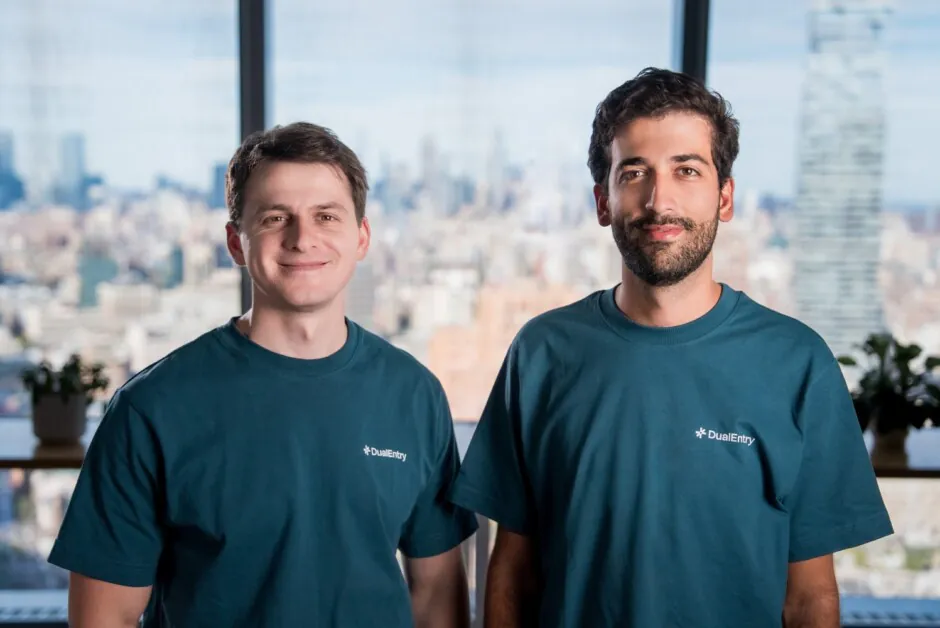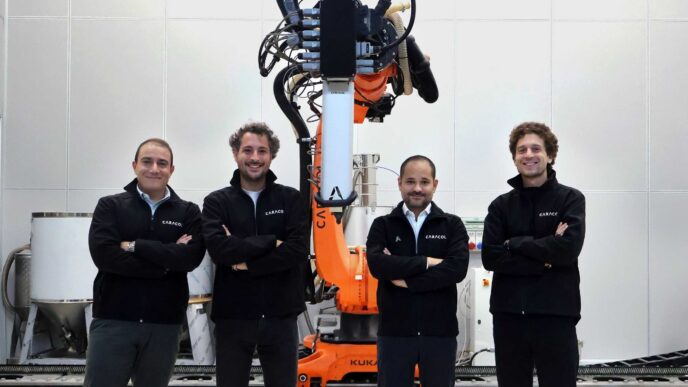DualEntry has officially stepped out of stealth and into the spotlight with a massive $90 million Series A raise, a round co-led by Lightspeed Venture Partners and Khosla Ventures. Joining them were GV, Contrary, and Vesey Ventures, pushing the company’s total funding to more than $100 million in just 18 months since it was founded. For a young startup, that scale of backing signals how much urgency investors see in rethinking enterprise finance technology.
The New York-based company is tackling one of the most outdated corners of enterprise software: ERP systems. For decades, these platforms have been necessary but painful, often slow, rigid, and costly to implement. DualEntry is positioning itself as the first ERP platform built natively with AI at its core, aiming to modernise how finance teams work by automating tasks that once consumed endless hours.
Even before its official launch, the platform had already processed more than $100 billion in journal entries. That traction demonstrates early demand for automation in accounting workflows, where finance teams have long been buried in manual reconciliations, onboarding bottlenecks, and messy data migrations. Customers range from smaller companies earning $5 million annually to publicly traded firms generating hundreds of millions in recurring revenue. One striking example is fintech firm Slash, which operates a $100 million-plus ARR business with a finance team of just one person thanks to DualEntry. CEO Victor Cardenas said the company has always run lean and now aims to grow to a billion dollars in revenue while keeping finance operations just as streamlined.
DualEntry’s origins stem from the frustration of its founders, Benedict Dohmen and Santiago Nestares. Nestares recalls how his previous company scaled to $100 million in revenue only to hit a wall with outdated accounting tools. The first ERP rollout failed, and even when it finally went live, the system was clunky and demanded constant manual input. That painful experience shaped the vision behind DualEntry: an ERP platform that businesses could adopt within 24 hours, with automation embedded from day one, no expensive consultants required.
The company’s offering extends beyond a traditional general ledger. It includes accounts payable, accounts receivable, FP&A, audit controls, and live bank connections. With what it calls Accounting Intelligence, DualEntry says it can automate as much as 90% of repetitive tasks. Those features cover reconciliations, bank matching, intercompany transfers, fraud detection, financial commentary, and even AI-generated suggestions to improve reporting. By handling the bulk of transactional work, the platform frees finance teams to focus on strategic decisions rather than spending late nights entering data line by line.
Another strength lies in its ability to scale and adapt. DualEntry supports multi-entity, multi-currency, and multi-book accounting, making it suitable for mid-market companies that are preparing for IPOs or international expansion. Importantly, the system integrates with more than 13,000 other platforms across banking, CRM, HR, AR, and AP. That level of connectivity creates a centralised source of financial truth, which many legacy systems fail to deliver.
Perhaps the most radical feature is its NextDay Migration, which promises to transfer an entire accounting suite into DualEntry within 24 hours. Everything from line items to subledgers and attachments is mapped and moved securely with the help of AI. For companies stuck on aging platforms like NetSuite, SAP, Sage Intacct, or Microsoft Dynamics, or those forced to abandon retired systems like Great Plains, QuickBooks Desktop, and PeopleSoft, the promise of a fast, painless migration is a game changer.
Investors see the same potential. Lightspeed, Khosla, and GV are betting on a platform that could reset the entire ERP market, which is still dominated by software built decades ago. The global ERP sector is projected to be worth hundreds of billions in the years ahead, and most of that spend still goes toward tools that finance leaders complain about daily. DualEntry’s pitch—that a modern AI ERP can automate nearly everything and go live in a day—is powerful and timely.
Nestares summed it up by explaining that most finance teams waste valuable hours trapped in outdated systems, doing manual data entry that adds little value. DualEntry’s mission is to reverse that. With $90 million in fresh funding, more than $100 billion already processed on its platform, and early customers using it to run massive operations with minimal staff, the company is quickly becoming one of the most promising players in enterprise AI.













